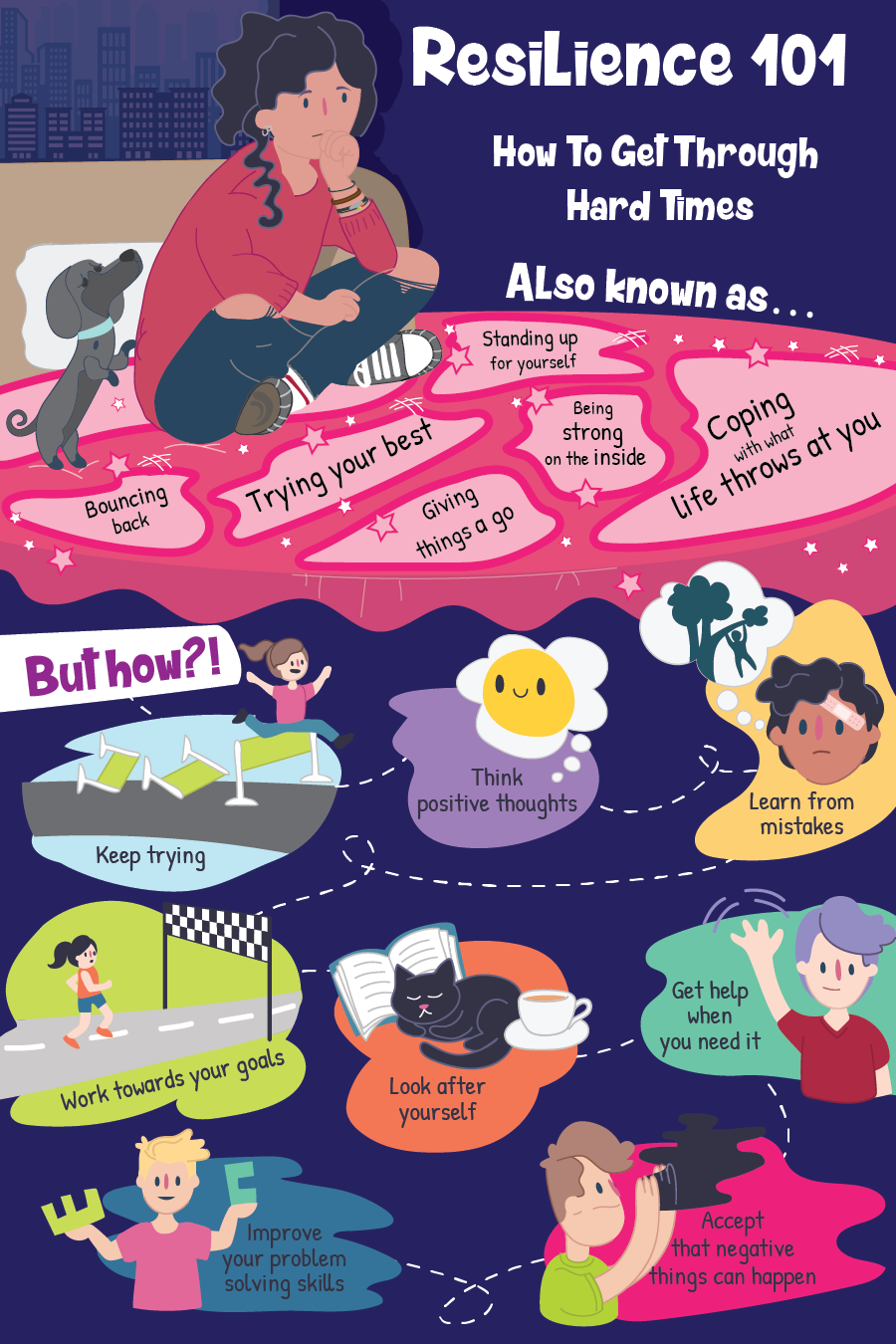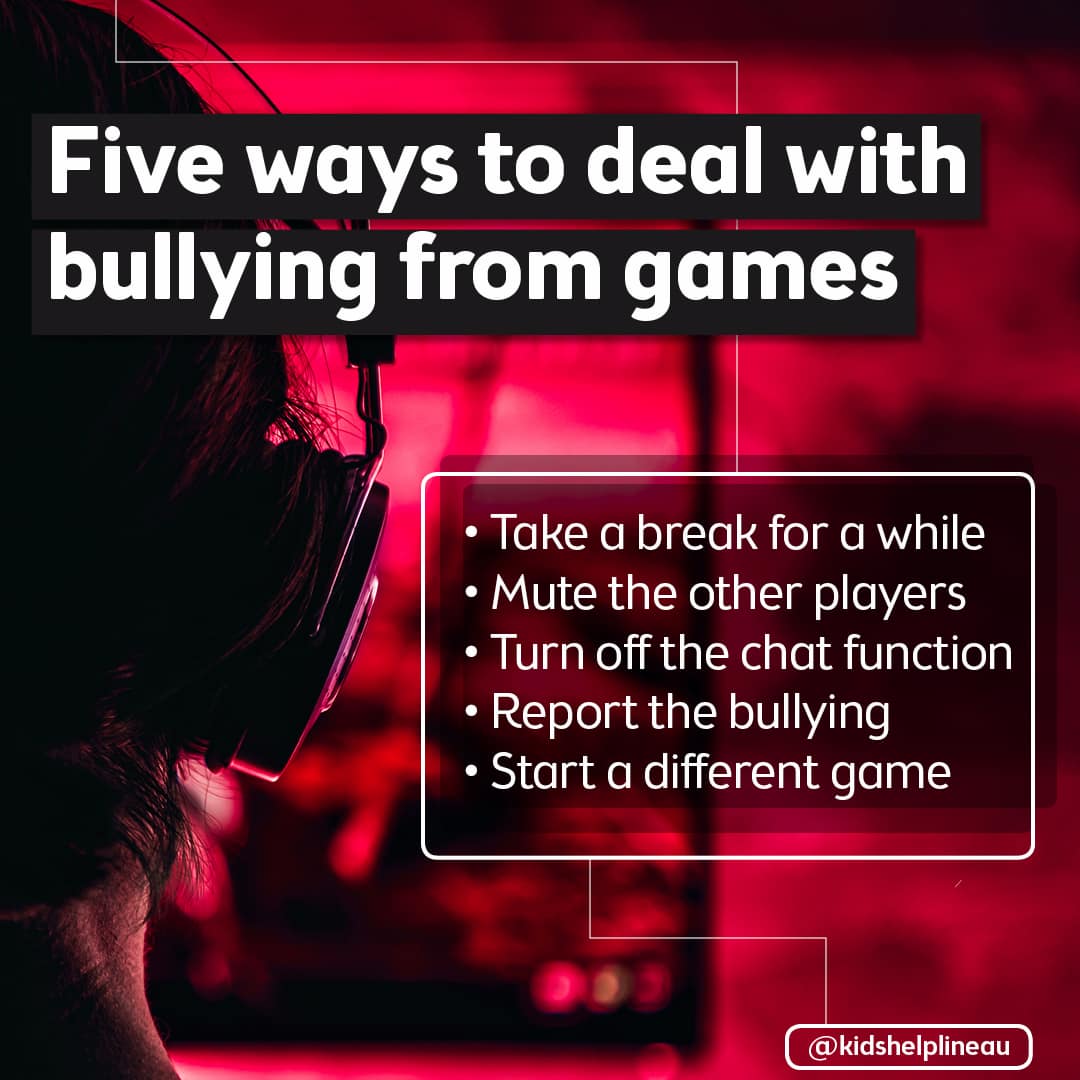Cyberbullying. Trolling. Outing. Cancelling. Doxxing.
Hanging out online is great! Until it's not.
Cyberbullying can look like lots of different things and can happen on different technologies, games, sites and apps. If something online brings you down and impacts on your wellbeing, there's stuff you can do and people who can help.
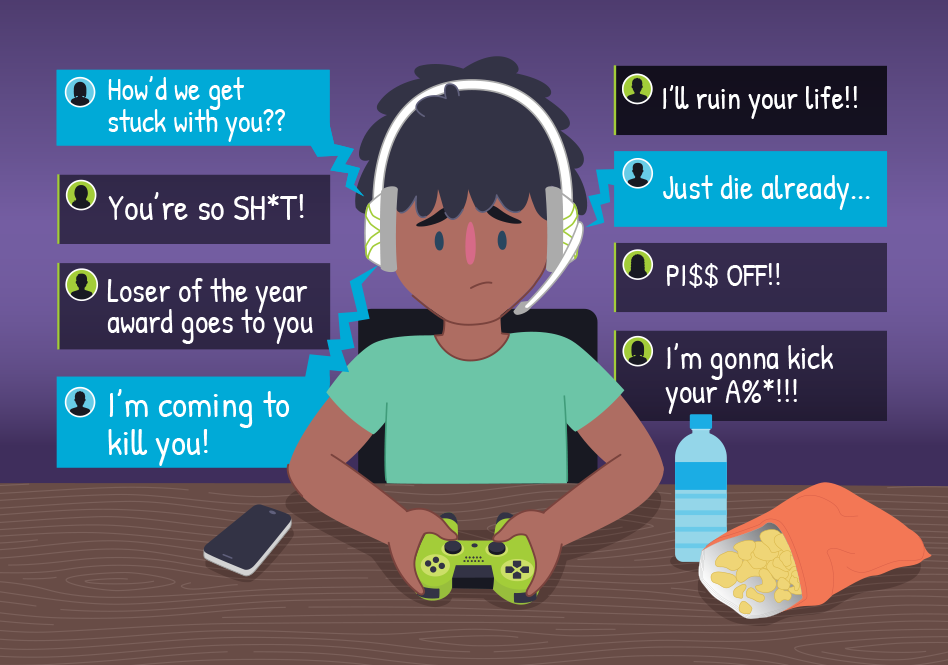
Are you a parent or a teacher looking for info and resources on cyberbullying?
Online bullying can include:
- Verbal abuse
- Humiliating someone
- Spreading rumours or lies
- Setting up fake profiles
- Excluding others
- Harassment
- Threats
If you are being cyberbullied, it's not your fault and there are things you can do.
Try following our 4S steps.
Stay calm
Cyberbullying can trigger a lot of emotions. It's important you don't panic or retaliate as sometimes that can make things worse. It's always a good idea to respond when you are feeling calmer and have a clear mind.
Screenshot
Take screenshots. It's important to keep the evidence if you have to report. If you find you keep looking at the screenshots or that having these saved are impacting on you, send a copy to someone you trust (e.g. a parent) and then delete your own copy.
Shut it down
You can block the person and report the cyberbullying to the game, site or app it occurs on. In most cases, cyberbullying is against their terms and conditions of use and should be removed.
If you are unhappy with the response you get or the cyberbullying is not removed after being reported, you can also report it to eSafety.
Support
Report the cyberbullying to more than one trusted adult and keep on talking to them until the situation is resolved. You could talk to a parent, a teacher, your school counsellor, another family member and Kids Helpline to name a few.
I blocked and reported the cyberbullying… now what? How do I feel better again?
Cyberbullying can impact on your self-esteem and self-worth. But, there are things you can do to heal and be resilient!
Our brain has a 'negativity bias', which means that we are more likely to remember criticisms than compliments, which is why cyberbullying can have such a big impact on us. There are things that, for some people, can actually help you to make your wellbeing even better than it was before you experienced the bullying! This is known as "Post-Traumatic Growth". This isn't always easy and can take time and practice, so it's okay if you find yourself feeling down or stuck at first.
Here are some other things that can really help!
- Reframe it – try to find positives that came about as a result of a bad situation
- Find meaning or purpose – sometimes going through something tough can make us stronger or teach us something new
- Focus on what you can control – you didn’t choose the bad thing that happened, but you can choose what happens next
- Prepare for next time – hopefully it won't happen again, but we can't always avoid bad things. It can help to have a plan around what you might do differently instead!
- Get support – if you find this stuff impacts you more severely than expected, or longer than you think it should, you can talk to someone you trust like a parent, teacher, friend or Kids Helpline
"If you are dealing with one-off mean comments, it can sometimes be a good idea to respond with kindness and a sense of humour. If you think someone is trolling you and wants you to get emotional or argue with them, ignoring them can stop stuff from escalating."
- Amanda, Kids Helpline Counsellor
How can I respond to mean stuff online?
In some cases, using humour can be a great way to defuse a situation where someone has said or done something mean. It's especially helpful in cases where others are trying to upset you or make you argue back. Here's some inspiration!


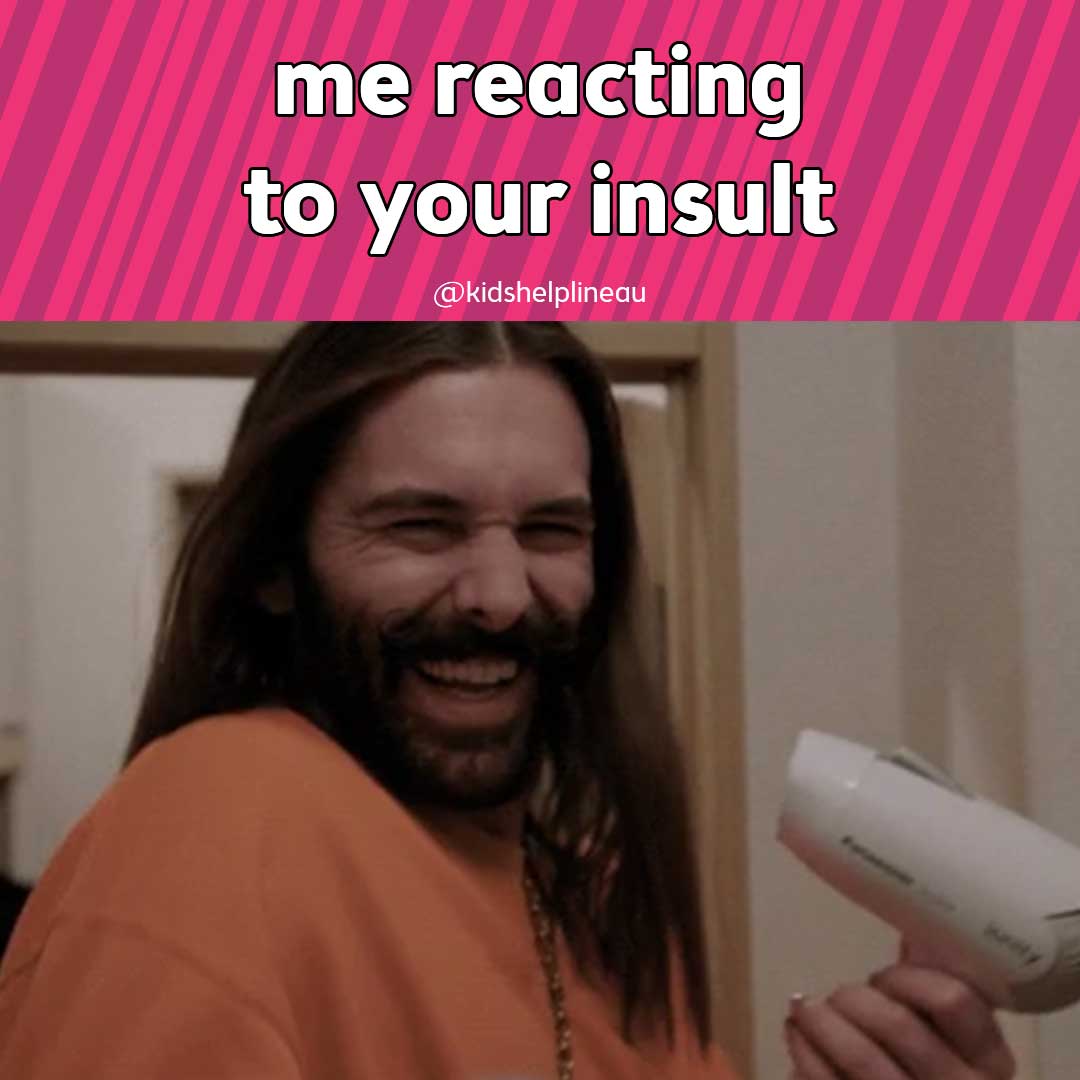


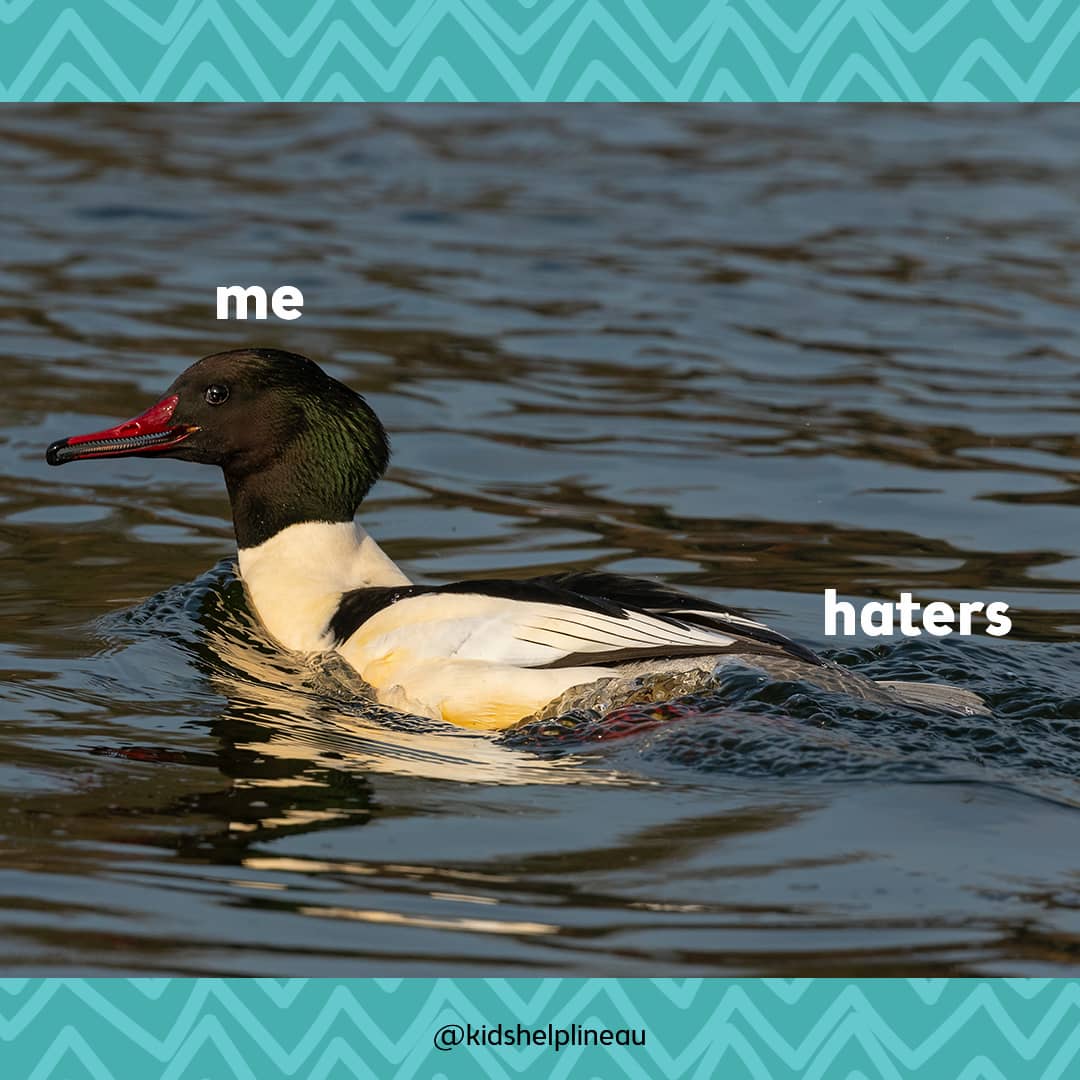
What would you do if your friend was being cyberbullied?
You can be an online upstander and help those who are being cyberbullied.
Cyberbullying isn't a personal problem, it's a social problem, which means we all have a responsibility to prevent and stop it. Cyberbullying hurts everyone involved – the person being bullied, those who witness the bullying, and even the person doing the bullying. You can be an 'upstander' by reporting and supporting. Reporting can let the person doing the bullying know that their behaviour is inappropriate and can encourage them to get support.
Learn more about how to be an upstander with our comic about Hiro, Madison and Tyler and how they stood up to cyberbullying.
Calling all gamers!
Lots of young people tell us they love gaming, but they don't love the inappropriate behaviour that they experience in them, such as abuse, being ditched or ganged up on.
Managing those boundaries in gaming can be tricky. On the one hand, you might want to fit in and know that a bit of competition is actually something that makes the game fun. On the other, you might be feeling stuck around how to respond when your mates turn on you or just do stuff that makes you feel uncomfortable. It might not be clear if this kind of behaviour is bullying, or just part of the gaming experience.
Check out our article on bullying in games to learn some tips and tricks on managing your boundaries to ensure you continue having fun gaming.
Need some tips?
Check out these videos!
Lots of young people experience cyberbullying
In 2019, Kids Helpline responded to 2,659 cyberbullying counselling contacts on phone, email and WebChat
We have a lot of great self-help information and resources on our webpage. Whether you need help with cyberbullying, online bullying in gaming, or any other kind of online issue, things can get better.
You can also chat with a counsellor for support. It's never too late to get help! Give us a call, start a WebChat or send us an email.
Check these out too:
Cyberbullying
If you’re experiencing cyberbullying, you’re not alone. It can be ...
READ MEOnline gaming - am I being bullied?
Online gaming is lots of fun most of the time, but sometimes ...
READ MEOnline Harassment
Being harassed online is a serious form of cyberbullying that is against ...
READ MEStaying safe online
Connecting with family and friends online can be fun and exciting, but ...
READ METalking helps! We’re here for you.
No problem is too big or too small.
We're here 24 hours a day, 7 days a week


